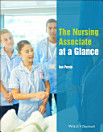Men's Health - E-Book: An Introductory Text
Apr 2026 · Elsevier Health Sciences
Ebook
356
Pages
family_home
Eligible
info
infoThis book will become available on April 1, 2026. You will not be charged until it is released.
About this ebook
When healthcare professionals are equipped with the knowledge and tools needed to effectively address men's health issues, the result is improved health outcomes for men, boys, women, families, and communities. Filling a gap in the current medical education literature, Men's Health: An Introductory Text, by Professor Ian Peate, is an essential resource for improving clinical practice, promoting preventive care, addressing health inequalities, and supporting holistic care for men. Abundant pedagogical features, full-color illustrations, and a focus on applying theory to practice make this up-to-date text ideal for undergraduate and postgraduate students, social workers, nurses, allied health care professionals, and all others who work, or will work, with men in the health care field. - Focuses on preventive care for men, discussing what it is that makes men ill, including medical and lifestyle factors - Reviews male anatomy and physiology, provides an overview of common concerns in men's health, and discusses the inequity in men's health outcomes for many physical and mental health conditions, including complex reasons for the life expectancy gap between men and women - Covers non-communicable diseases such as heart disease, certain cancers, type 2 diabetes, and obesity - Contains student-friendly features such as case studies and clinical scenarios; care-specific boxes; legal, ethical, and professional information; public health promotion; investigations and procedures; and more - Offers extensive coverage of men's mental health issues and outcomes, including a nuanced approach to care that acknowledges ways in which men may present and cope with health issues differently from women - Addresses key topics such as biomedical and sociobiological issues, underlying causes of poor health outcomes for men and boys, health inequality and social determinants at individual and population levels, the use of digital technologies to enhance care, and more - Explores the unique health needs of specific populations, including LGBTQ+ individuals, men from diverse cultural backgrounds, men across the age continuum, homelessness, and men who are under the supervision of the parole/criminal justice system
Reading information
Smartphones and tablets
Install the Google Play Books app for Android and iPad/iPhone. It syncs automatically with your account and allows you to read online or offline wherever you are.
Laptops and computers
You can listen to audiobooks purchased on Google Play using your computer's web browser.
eReaders and other devices
To read on e-ink devices like Kobo eReaders, you'll need to download a file and transfer it to your device. Follow the detailed Help Center instructions to transfer the files to supported eReaders.






